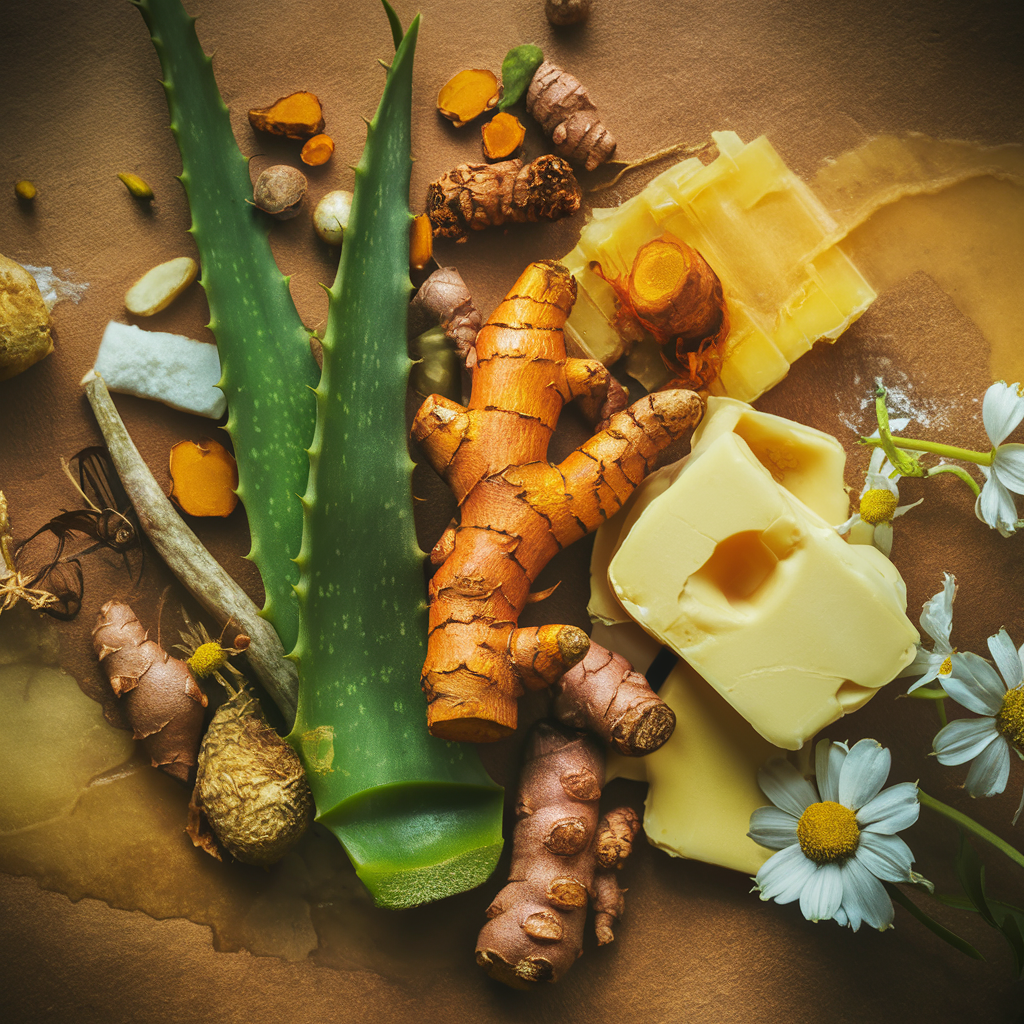- Discover the best and most effective natural skin lightening ingredients
- Learn how these natural remedies can help reduce hyperpigmentation and brighten your complexion
- Expert insights and tips for achieving radiant, even-toned skin
Have you ever wondered why so many people are switching to natural ingredients for skin lightening?
Well, you’re not alone! As more of us become conscious of what we put on our skin, the demand for natural and organic alternatives has skyrocketed.
But what’s behind this shift?
Conventional skin lightening products often contain harsh chemicals that can cause irritation and long-term damage.
On the other hand, natural ingredients not only promise a gentler touch but also bring a host of additional benefits.
Knowing how to make skin lightening cream with natural ingredients means you can control what goes into your skin care routine.
If you want to brighten up, here are the best natural ingredients for skin lightening to try out.
Coconut oil for skin lightening
Ever scrolled through endless beauty blogs raving about coconut oil’s magical skin-whitening powers?
While coconut oil is a fantastic moisturizer, there isn’t enough research to definitively say it’s a skin-lightening champion.
However, coconut has hydrating properties which helps nourish the skin [1]. By keeping your skin plump with moisture, coconut oil can indirectly make it appear brighter.
Coconut oil also boasts a decent amount of Vitamin E, a known antioxidant.
The ingredient helps in tackling hyperpigmentation and scarring, leading to a more even skin tone and natural whitening of skin.
Evening primrose oil for skin lightening
Have you ever wondered if evening primrose oil helps lighten your skin?
A study by F Shahidi in Biofactors back in 2000 revealed the richness of antioxidants in oilseeds, including evening primrose oil.
Antioxidants fight free radicals, which could help reduce dark spots and give you a more even skin tone.
Evening primrose oil contains gamma-linolenic acid (GLA), known for its anti-inflammatory properties.
Research shows that GLA boosts skin moisture, elasticity, and firmness while cutting down on inflammation.
Over time, the ingredient help lighten stubborn dark spots, making it an effective natural skin brightener.
Evening prime rose also reduces transepidermal water loss, keeping your skin hydrated and healthy.
A healthier skin barrier means less chance for hyperpigmentation and dark spots.
Now, there isn’t direct evidence for using evening primrose oil as a natural skin lightener.
However, evening prime rose works for conditions like eczema and acne, thanks to its anti-inflammatory properties.
It also helps improve your overall skin tone, potentially lightening dark spots along the way.
Sources: Curology, Skin Type Solutions:
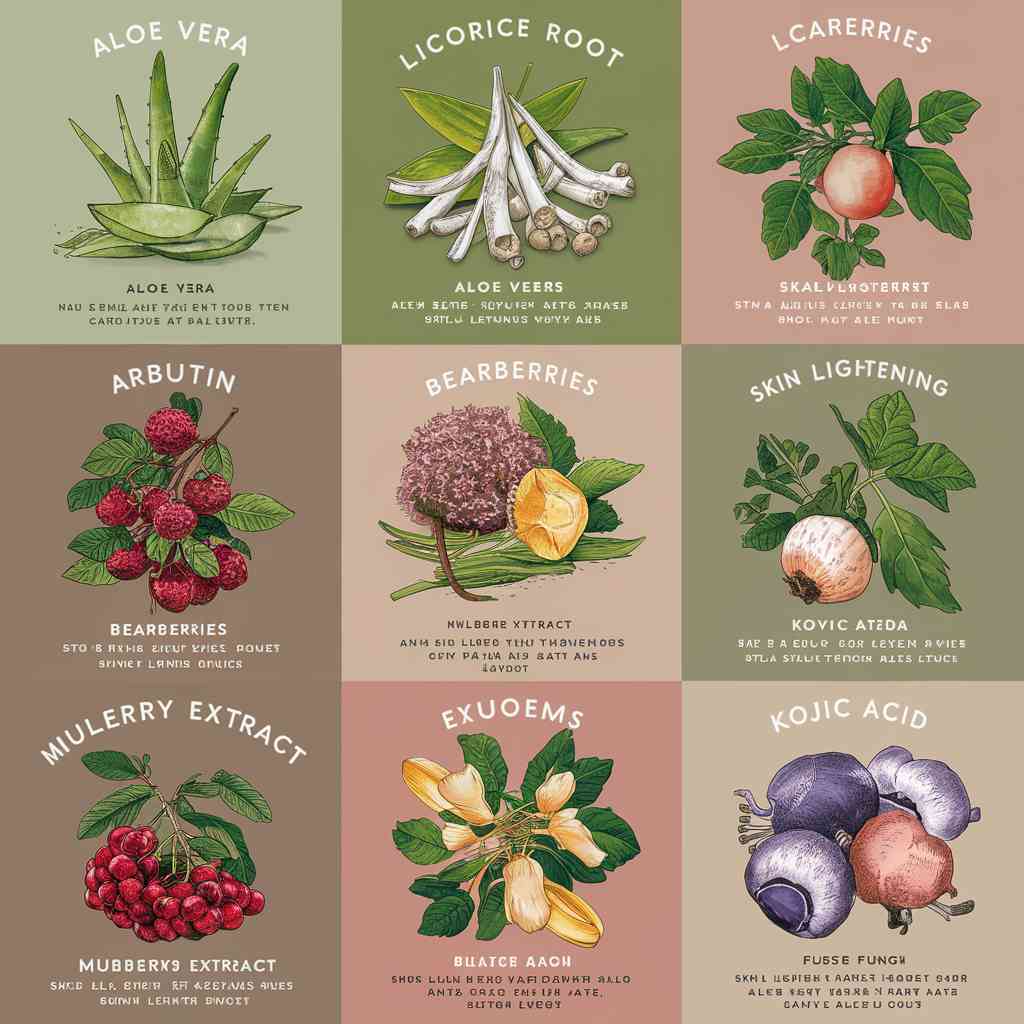
Glycolic acid for skin lightening
Thanks to its tiny molecular size, glycolic acid dives deep into your skin, breaking down the bonds between dead cells.
This means it effectively promotes exfoliation and cell turnover, revealing fresher, brighter skin underneath. (Ashenly) (Ashenly) (Ashenly)
Glycolic acid also stimulates collagen production!
What’s collagen, you ask?
It’s a protein that keeps your skin elastic and plump. Increased collagen improves skin texture and enhances skin lightening over time. (Ashenly).
Starting with lower concentrations is key to avoiding skin irritation. Consistency is your best friend here—and don’t forget that sunscreen!
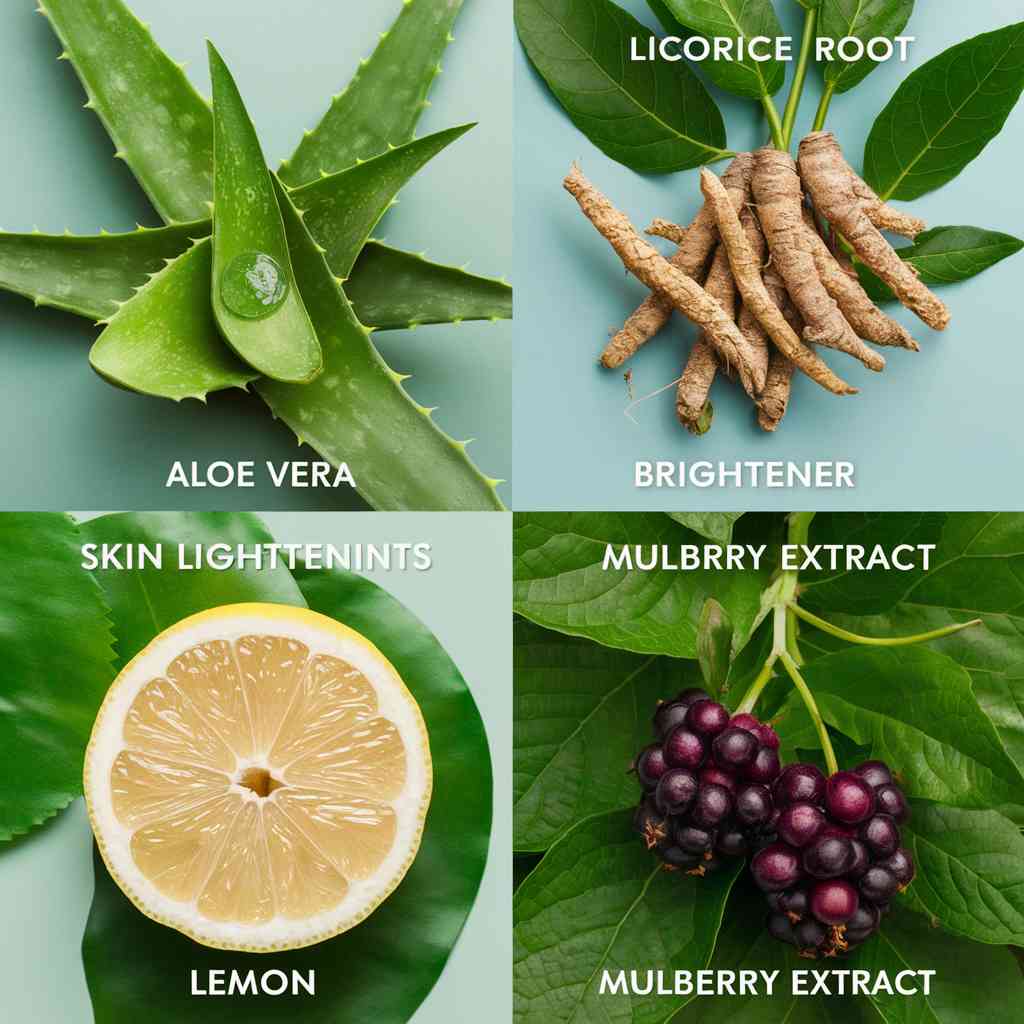
Amla for skin whitening
Amla, known as Indian gooseberry, packs a punch when it comes to skin care.
The ingredient has been shown to reduce melanin production and lighten skin pigmentation.
Intrigued? You should be!
A study even compared an amla-based formulation to the popular hydroquinone 4%, and guess what?
Amla held its own in treating facial pigmentation effectively!
Amla is also rich in antioxidants. The antioxidants combat oxidative stress in your skin.
Less oxidative stress means brighter skin and fewer dark spots.
Thanks to its high antioxidant content, amla promotes collagen production as well.
The result? Improved skin firmness and elasticity.
Sources: (Vedix) (Styles at Life) (Spandidos Publications)
Rose water skin whitening
Rose water contains anti-inflammatory and antioxidant compounds that prevent redness and irritation!
Dr. Axe backs up this claim with studies showing that rose petal extracts are the real deal when it comes to fighting off UV-induced skin woes.
But that’s not all! Women’s Concepts reveals that rose water’ has astringent properties. This little powerhouse hydrates and tightens pores, leaving you with a glow!
And guess what? It’s gentle enough for daily use!
Rose water is also your shield against the sun’s harmful rays. Say goodbye to dark spots and hyperpigmentation.
Dr. Axe assures us that pure rose water is a friend to all skin types, even the sensitive ones!
(L’Oreal Paris) (Dr. Axe)(Women’s Concepts)
Neem oil skin lightening
Curious about neem oil’s magical touch on your skin? Let me spill the beans!
Organic Facts reveals that neem oil contains anti-inflammatory, antimicrobial, and skin-nourishing powers!
Neem oil reduces redness and swelling, giving you a shot at a more even skin tone!
According to Greenspace Life, neem oil may be one of the effective natural skin lightening ingredients.
Packed with vitamin E and exfoliating properties, neem oil helps fight pigmentation!
Neem oil will not transform your skin overnight, but it’s the soothing balm your irritated skin’s been begging for!
Smooth, calm, and uniform complexion? Count us in!
Sure, there isn’t direct link between neem oil and skin whitening. However, its nourishing fatty acids and vitamin-E makes neem oil’s like a moisturizing hug for your skin!
Sources: (Organic Facts) (Greenspacelife) (Justin Boey)
Clove oil for skin whitening
According to Cosmotality and MDPI, eugenol, a component in clove oil is a superhero in the fight against dark spots!
With its antimicrobial and antioxidant properties, eugenol fights dark spots, giving your skin a much-needed boost!
Cosmotality highlights clove’s ability to fight fungi, potentially evening out your skin tone in the process.
According to MDPI’, clove oil’s anti-inflammatory properties soothe the skin, calming inflammation that often leads to hyperpigmentation and dark spots.
So, what’s the secret to achieving that enviable complexion?
Regular application of clove oil-infused products, of course!
Whether it’s serums or creams, Cosmotality and Ashenly agree—consistency is key!
With each application, you’re paving the way to a clearer, more even-toned complexion.
Sources: (Cosmotality) (MDPI). (Ashenly).
Apple cider vinegar and skin whitening
ACV contains acetic acid, a powerhouse in the quest for lighter skin!
Dilute it with water, dab it on those stubborn dark patches, and voilà! Over time, watch as hyperpigmentation takes a backseat, leaving you with skin that’s as bright as sunshine!
ACV mixed with ingredients like honey, baking soda, or lemon juice can enhance its skin-lightening effects.
Honey provides moisture and has antibacterial properties. On the other hand, baking soda and lemon juice offer exfoliation and bleaching effects, respectively.
Recipes combining ACV with aloe vera, olive oil, or onion juice have been suggested to help lighten the skin.
The ingredients regulate melanin production and provide antioxidant benefits.
Sources: (Justin Boey). (Skin Disease Remedies) (Skin Care Geeks).
Apple for skin whitening
Craving that luminous, picture-perfect complexion?
Apples contains antioxidants, the superheroes of skincare!
The antioxidants protect your skin from oxidation and free radicals, reducing dark spots and pigmentation.
Cosmetics Info reveals the apple’s secret weapon: skin conditioning prowess!
From the peel to the juice, apple extracts work as emollients and exfoliants, removing dead skin cells. Who knew an apple a day could keep dull skin at bay?
Apple stem cell extracts are incorporated into anti-aging skincare products.
The extracts help improving skin tone and texture by supporting skin cell regeneration and longevity.
Apples also contain vitamin C, which is known for its skin-brightening effects.
Regular use of apple-based skincare products can help inhibit melanin production, leading to a brighter and more even complexion.
Sources: (Oliva Skin & Hair Care Clinics) (Cosmetics & Toiletries). (Cosmetics Info)
Berberis aquifolium for skin whitening
Berberis aquifolium is also a powerhouse in the realm of skincare!
The ingredient is renowned for its ability to banish skin pigmentation and brighten your complexion.
The plant contains berberine, which has anti-inflammatory and antimicrobial properties.
These properties help manage skin conditions like acne and reduce hyperpigmentation.
While commonly used for conditions like psoriasis and eczema, the anti-inflammatory effects of Berberis aquifolium may also contribute to a more even skin tone over time.
In homeopathic medicine, Berberis aquifolium is often recommended for skin-related issues, including dull and rough skin.
Beyond lightening, Berberis aquifolium is considered a skin tonic that can improve overall skin health.
(Homeopathy Remedies Online) (Lybrate). (MyPsoriasisTeam).
Coconut milk for skin lightening
Coconut milk contains vitamin C and E, known for their skin brightening and anti-aging effects.
These vitamins help maintain skin elasticity and prevent sagging and age spots, contributing to a brighter complexion.
Combining coconut milk with ingredients like honey, yogurt, or almonds can enhance its skin-lightening effects.
These natural brightening ingredients can be applied as face masks or scrubs to exfoliate, moisturize, and brighten the skin.
Regular use of these DIY remedies helps improve skin tone and texture
Coconut milk is also an excellent natural moisturizer. Its hydrating properties help to keep the skin smooth and radiant.
The ingredient contributes to a brighter and more even skin tone when used regularly as part of skincare routines.
sources: (Natural Living Ideas). (Skin Disease Remedies) (Coconut for Life).
Here is a complete list of additional natural skin whitening agents for skin
- Green Tea Extract: Contains catechins that help reduce pigmentation.
- Bearberry Extract: Contains arbutin, which inhibits melanin production.
- Mulberry Extract: Inhibits tyrosinase activity, reducing melanin production.
- Chamomile Extract: Chamomile is an ingredient for skin whitening that contains apigenin, which can lighten skin.
- Licorice Root Extract: Glabridin helps reduce hyperpigmentation.
- Saffron: Crocin in saffron has skin lightening properties.
- Yogurt: Contains lactic acid that helps in skin exfoliation and lightening.
- Grapeseed Extract: Contains proanthocyanidins that reduce melanin production.
- Papaya Extract: Contains papain enzyme which helps exfoliate and lighten skin.
- Turmeric Extract: Curcumin reduces hyperpigmentation and brightens skin.
- Cucumber Extract: Contains antioxidants and silica which help lighten skin.
- Aloe Vera Extract: Aloesin in aloe vera helps inhibit melanin production.
- Lemon Extract: Contains Vitamin C that helps reduce pigmentation.
Natural vs. chemical skin lightening methods
Have you ever found yourself torn between reaching for that trendy new chemical serum or sticking to your trusty organic face oil?
Here is a break down of both options, helping you make an informed decision about what’s best for your skin.
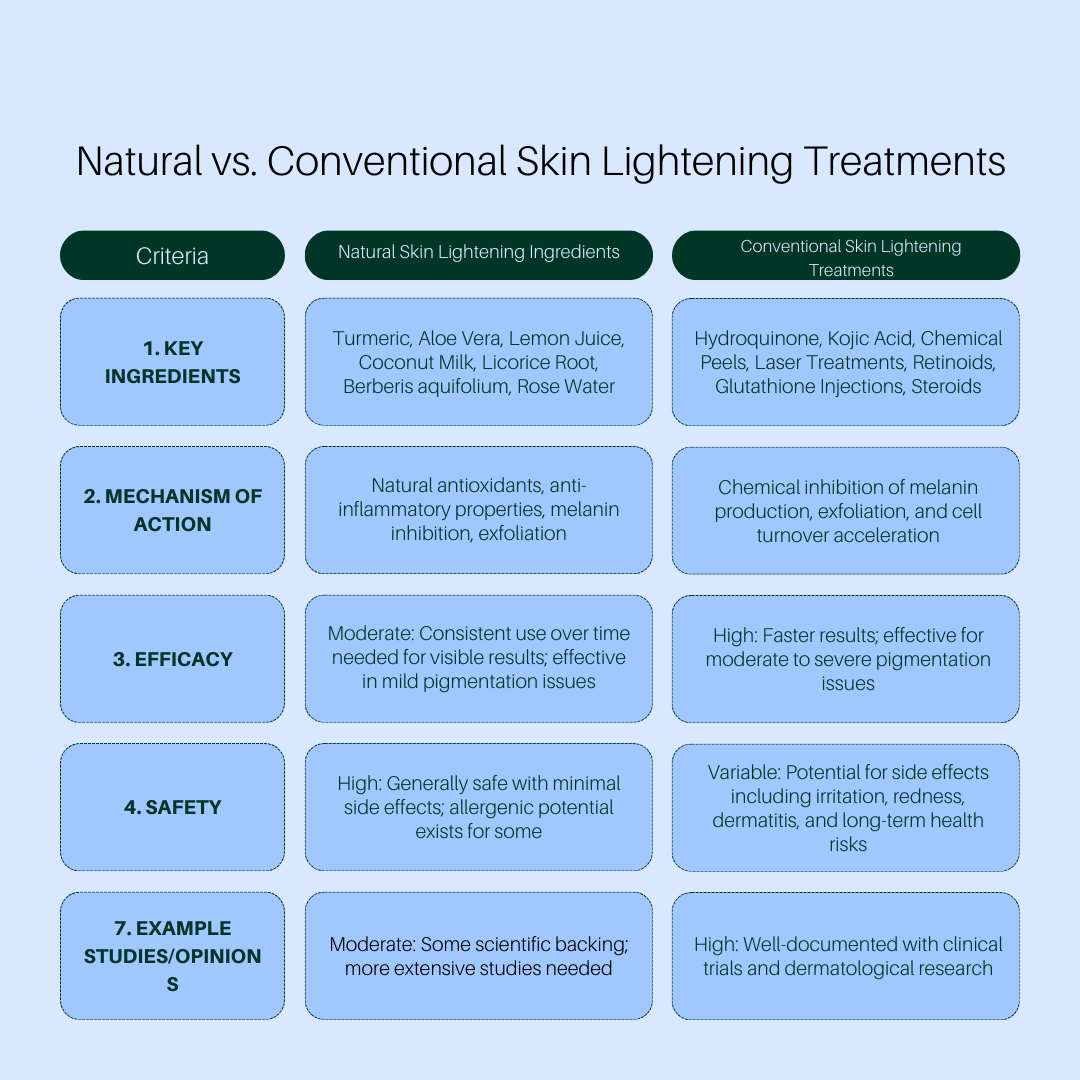 Sources : NIH on Turmeric, ScienceDirect on Aloe Vera, Journal of the American Academy of Dermatology on Hydroquinone, Dermatologic Surgery on Chemical Peels
Sources : NIH on Turmeric, ScienceDirect on Aloe Vera, Journal of the American Academy of Dermatology on Hydroquinone, Dermatologic Surgery on Chemical Peels
Expert Opinions concerning organic and chemical based skin lightening ingredients:
- Natural Ingredients:
- “Natural remedies such as turmeric and aloe vera can be effective for mild pigmentation when used consistently.” – Dr. Shari Lipner, Dermatologist.
According to Dr. Shari, natural skin care products can treat mild hyperpigmentation.
Turmeric contains curcumin, which has anti-inflammatory and skin-brightening properties.
Aloe vera on the other hand contains aloin and aloesin, compounds known to inhibit melanin production.
However, the efficacy of the remedies relies heavily on consistent application over time.
- Conventional Treatments:
- “Hydroquinone is the gold standard for hyperpigmentation but must be used under supervision to avoid side effects.” – Dr. Mona Gohara, Dermatologist.
The difference between skin Brightening, Lightening and Whitening
The terms “skin brightening,” “skin lightening,” and “skin whitening” are often used interchangeably.
However, the terms refer to different skincare goals and processes. Here’s a breakdown of each term:
Skin Brightening
Purpose:
Skin brightening aims to enhance the natural radiance and glow of the skin without altering its natural color.
It primarily addresses dullness, fine lines, and minor imperfections.
The aim of skin brightening is to remove dead skin cells and promote cell renewal.
How it works:
Brightening products contain ingredients like vitamin C, alpha hydroxy acids (AHAs), beta hydroxy acids (BHAs), retinol, and niacinamide.
These ingredients help exfoliate the skin, boost collagen production, and improve hydration. (Fixderma Skincare) (LovelySkin.com) (Cosmotree Clinic).
Skin Lightening
Purpose:
Skin lightening focuses on reducing hyperpigmentation, dark spots, and discoloration.
It does not change the overall color of the skin but rather targets specific areas of pigmentation.
How it works:
Lightening products have ingredients like hydroquinone, kojic acid, alpha arbutin, and tranexamic acid.
These ingredients inhibit melanin production, which helps in reducing the appearance of dark spots and hyperpigmentation. (Fixderma Skincare) (Admire My Skin) (Calyxta).
Skin Whitening
Purpose:
Skin whitening aims to reduce the overall melanin content in the skin, leading to a lighter skin tone.
This is often sought after in regions where lighter skin is culturally associated with beauty.
How it works:
The ingredients for skin bleaching or whitening can be more aggressive and may contain higher concentrations of melanin-inhibiting ingredients.
They often involve chemical procedures that can alter the natural skin balance. (Fixderma Skincare) (Cosmotree Clinic).
Key Differences
- Skin Brightening: enhances the skin’s natural radiance and glow by removing dullness and dead skin cells.
- Skin Lightening: targets and reduces specific pigmentation issues like dark spots and uneven skin tone.
- Skin Whitening: aims to lighten the overall skin color by reducing melanin production.
User Testimonials on the use of natural ingredients for lightening skin
These reviews are from real users who have tried various organic ingredients for skin lightening, detailing their experiences and results.
-
- Reviewer: LunaLove
- Platform: SkinCareTalk
-
-
Review Summary: LunaLove shared her experience using turmeric and lemon juice to brighten skin. She applied a paste made from these ingredients three times a week and noticed a gradual improvement in her skin tone.
-
Supplementox:
-
-
- Reviewer: Anna K.
- Platform: Supplementox
- Review Summary: Anna discussed her mixed results with a supplement containing glutathione and Vitamin C. While she noticed some skin lightening, she felt the lack of transparency about ingredient doses was concerning.
-
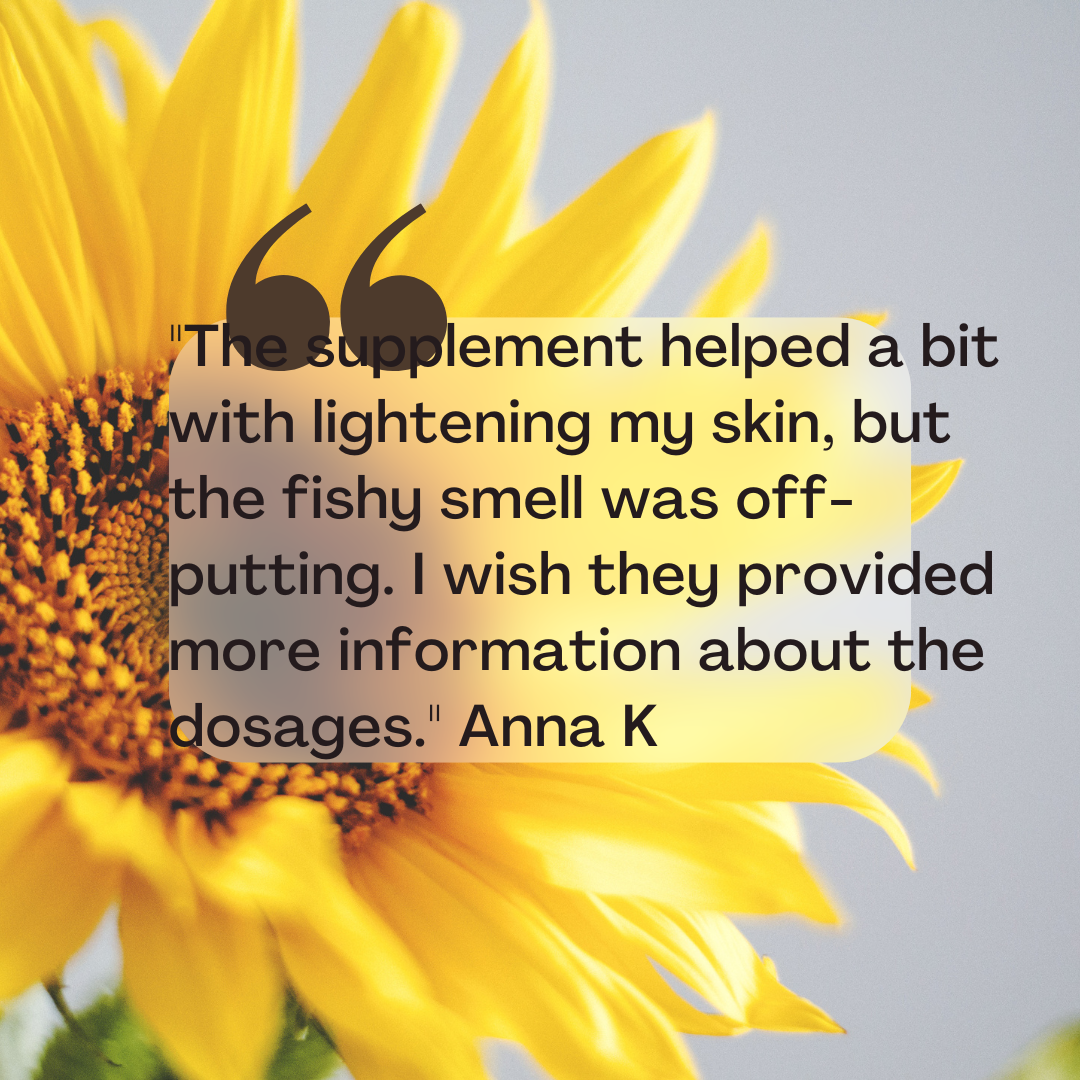
Ashenly:
-
- Reviewer: Nina P.
- Platform: Ashenly
-
Review Summary: Nina praised aloe vera for its effectiveness in reducing hyperpigmentation and evening out her skin tone. She used pure aloe vera gel regularly for a few months.
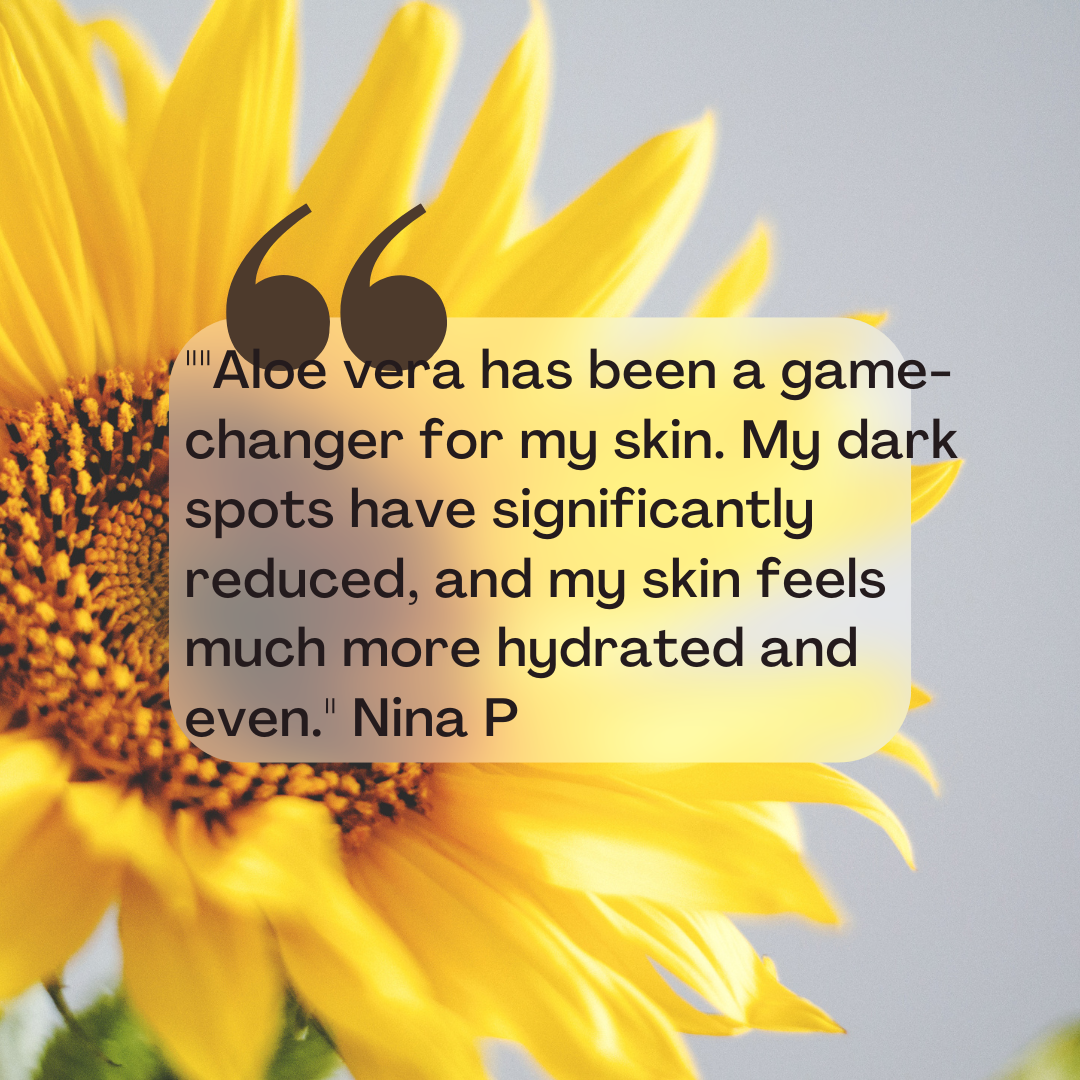
Organic Skin Care:
-
- Reviewer: Sara M.
- Platform: Organic Skin Care
-
Review Summary: Sara detailed her positive experience with licorice root extract. She applied it as a part of her daily skincare routine and saw noticeable improvements in her skin’s clarity and brightness.
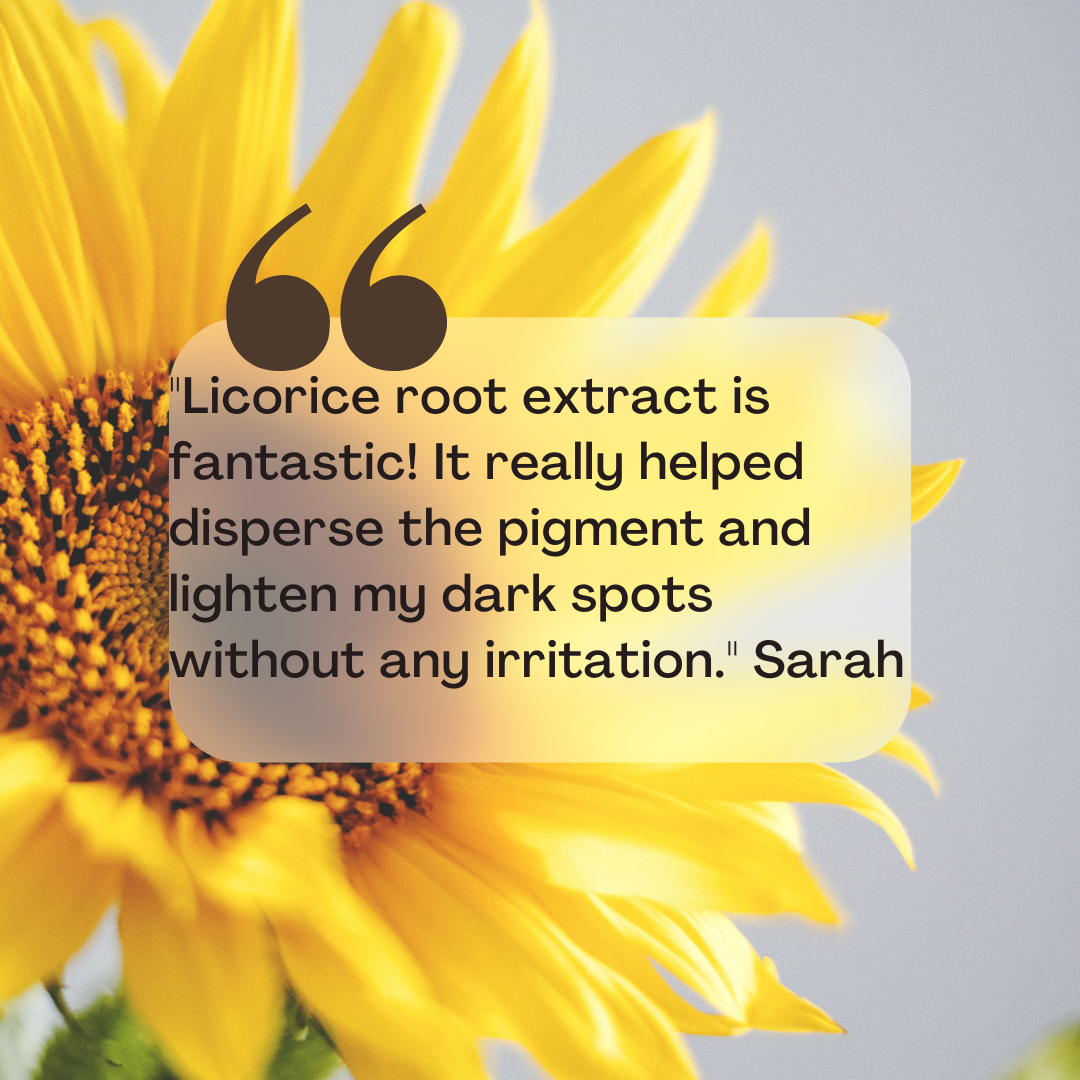
- Reddit SkincareAddiction:
- Reviewer: glowgirl2024
- Platform: Reddit
-
Review Summary: Glowgirl2024 shared her DIY skin lightening journey using a mask made from papaya and honey. She noted that consistent use over two months led to a brighter complexion.
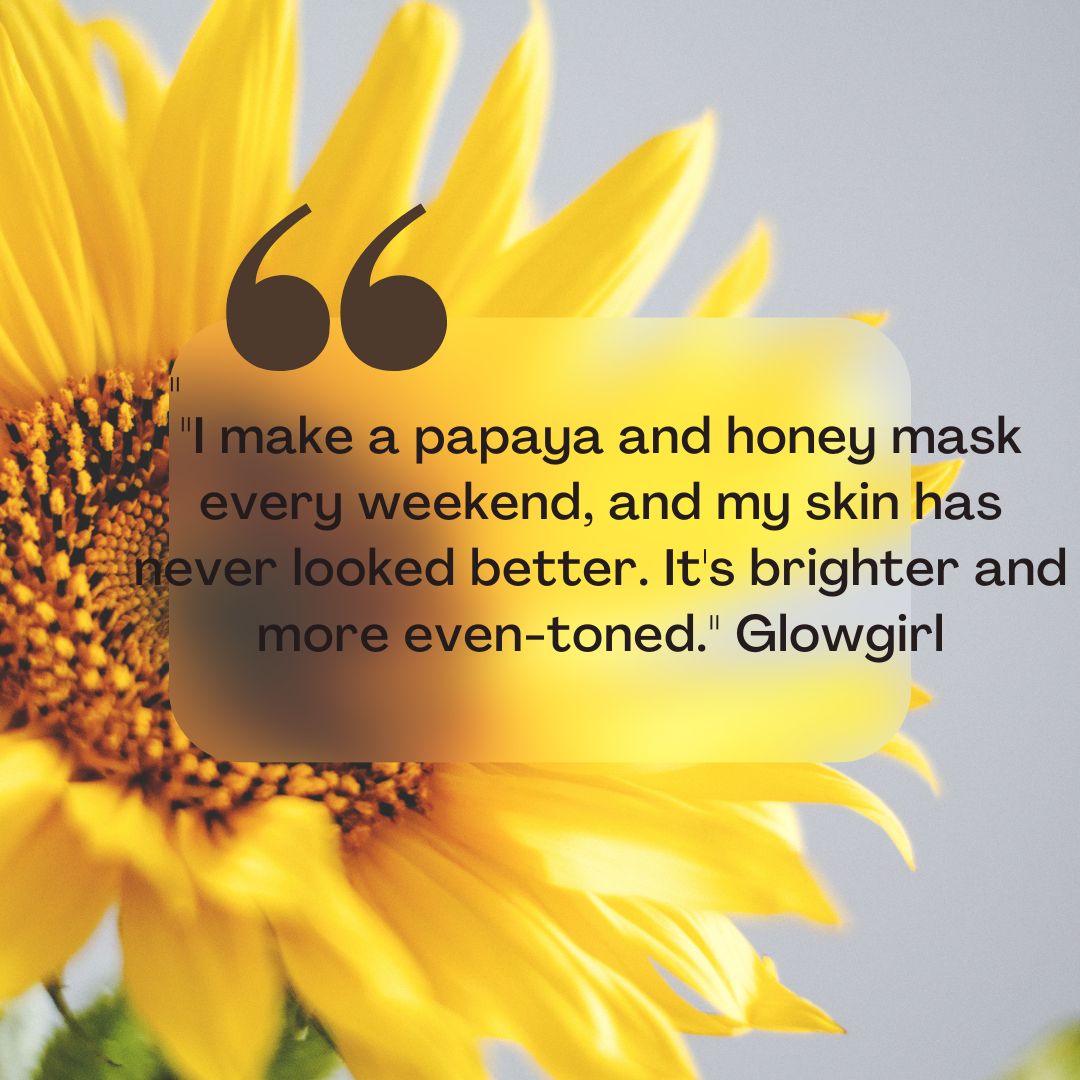
- Facebook Group – Natural Beauty Tips:
- Reviewer: Maria L.
- Platform: Natural Beauty Tips Facebook Group
- Review Summary: Maria talked about her success with using rosehip oil to fade acne scars and improve her skin tone. She applied the oil nightly and saw results after a few weeks.
- Quote: “Rosehip oil has worked wonders for my acne scars. My skin looks so much clearer and the scars are barely visible now.”

I’m a devoted organic skincare enthusiast, passionate about the natural, wholesome goodness that organic products bring to our skin.
Organic skincare isn’t just a hobby for me—it’s a lifestyle. Every product I use, recommend, and write about has been carefully chosen for its purity and effectiveness. Everything I write about is backed by scientific studies, dermatologists’ opinions, and user experiences.
I also excel at tackling skincare challenges with innovative, organic solutions.
